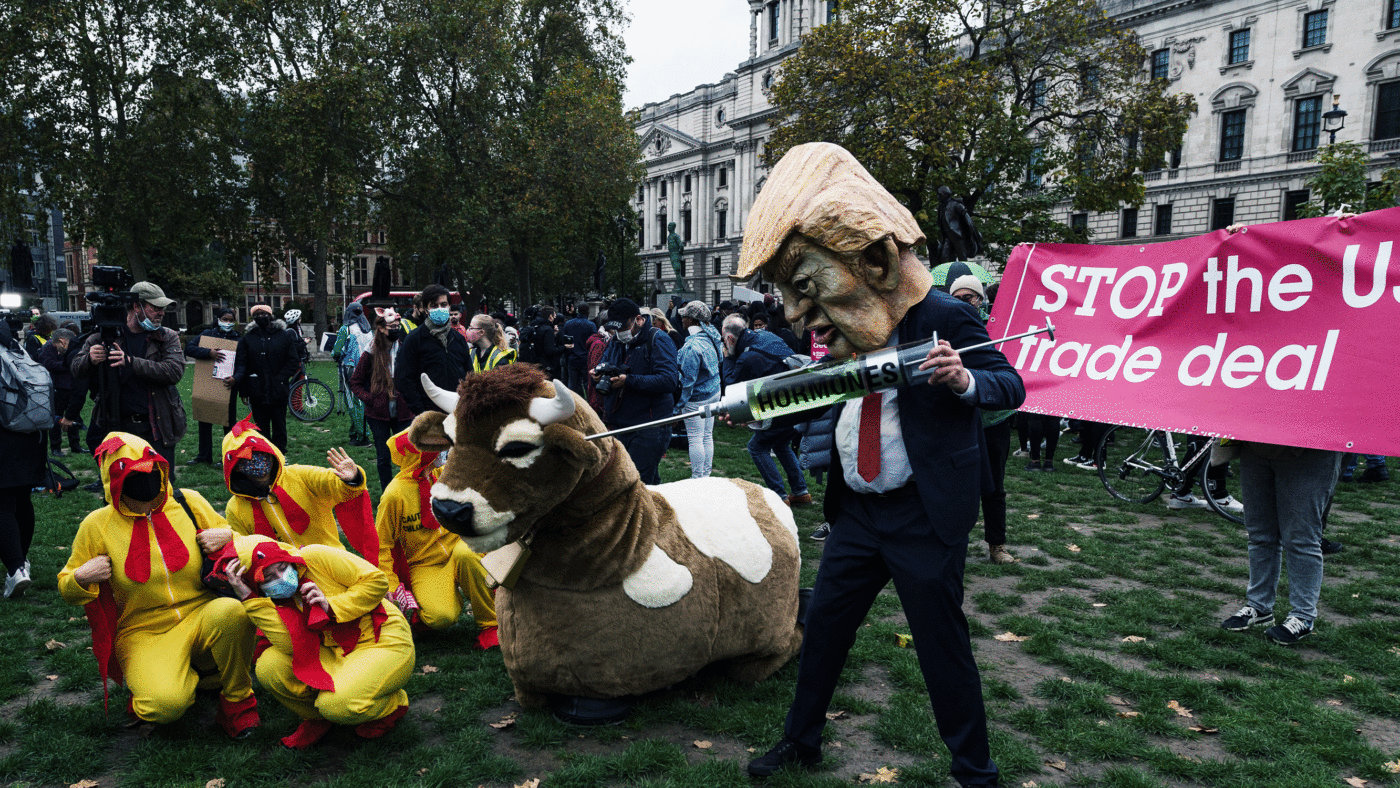While Westminster has been fixated on the fallout from Partygate in recent weeks, one of the most consequential pieces of post-Brexit legislation was recently introduced in Parliament. The Genetic Technology (Precision Breeding) Bill comes at a time when food shortages are hitting the headlines. Warning signs were already evident in 2021: a combination of extreme weather conditions and rising gas and fertiliser costs had caused agricultural commodity prices to soar. Russia’s invasion of Ukraine made an already bad situation worse, and countries including China, Turkey, India and Argentina are now restricting exports of food and fertiliser.
Predictably, there is now renewed discussion about how Britain should feed itself, and whether the UK can be self-sufficient. The coming debates over food and agriculture will doubtless be intense and, while they may appear to be new, we’ve seen versions of them before: Tradition versus Modernity, Ecology versus Life Sciences, Prophets versus Wizards.
Deliberations over our food production – please let’s not allow them to become a culture war – will follow a well-rehearsed playbook. Pro-innovation pressure groups like Science for Sustainable Agriculture will claim that processes such as gene editing bring huge economic and environmental benefits, while anti-innovation lobbies like Beyond GM and GM Watch will frame any newly proposed solutions as woefully untested technology that pose a threat to human health. Or, failing that, to the environment.
Anti-innovation activists will say that we should follow the European Union’s well-intentioned but admittedly stifling ‘precautionary principle’ – a principle neatly summarised by food policy expert Professor Tim Lang:
‘If in doubt, the consumer or eco interest triumph over business. Better to assume there might be a problem than pooh-pooh it only to find there were problems later on.’
Next, the discussion will shift to battlefields of knowledge, as supporters and opponents seek to show how many experts support their cause. This was evident when the EU was recently weighing up whether to re-authorise the use of glyphosate. On the one hand, authorities in the US, Canada, Germany, France, Australia, New Zealand, Japan, Korea and Brazil have said that glyphosate is safe. On the other hand, the International Agency for Research on Cancer concluded it was ‘probably carcinogenic’. Bear in mind that ‘probably carcinogenic’ puts glyphosate in the same category as glass manufacturing, drinking beverages above 65°C and hairdressing, none of which, tellingly, anyone is seeking to ban.
These sorts of debates over food and agriculture should be pretty straightforward. Ninety thousand pages of peer-reviewed evidence concluding that the chemical compound of a weedkiller is safe, versus the conclusions of one single agency: it’s an open and shut case. But the issue is no longer really about expertise, it’s about politicised perceptions of whose expertise matters. The trouble is that people like to choose their own evidence.
The penultimate stage is activist cherry-picking. When organisations such as the European Food Safety Authority find that products such as neonicotinoids or chlorpyrifos are dangerous, they are praised for their independence and expertise. But if regulatory authorities use the same technical assessments and procedures and conclude that a modern process or chemical is safe, anti-innovation lobby groups will declare that the scientists involved are mired in conflicts of interest and that their research processes – which they may have previously extolled – are corrupt. You’ll know when we’ll have reached the final stage of anti-innovation activism when opponents claim that any result they dislike – for instance that gene-editing is harmless – is funded by big business interests.
In the end, the forthcoming debate over food production is likely to be instinctive and emotional, rather than sober and fact-based. A representative of an NGO was refreshingly honest on this point, confirming to me that their goal was not to regulate any specific product, but to achieve their overall vision of pesticide-free farming. What anti-innovation lobby groups are actually doing is ‘railing against bigger issues; and, according to one European regulator I spoke with, ‘waging a proxy war against the entire agricultural system as it stands today’.
As political decisionmakers rightly examine how to produce safe, nutritious and affordable food, they can anticipate a fierce and emotionally charged lobbying frenzy. Their inboxes will be flooded with recommendations and copy-and-pasted letters and petitions. MPs of all parties should focus on how to legislate for the best and most efficient way to grow food in this country, rather than on what is most politically expedient. After all, if you can’t feed a country, you don’t have a country.
Click here to subscribe to our daily briefing – the best pieces from CapX and across the web.
CapX depends on the generosity of its readers. If you value what we do, please consider making a donation.


